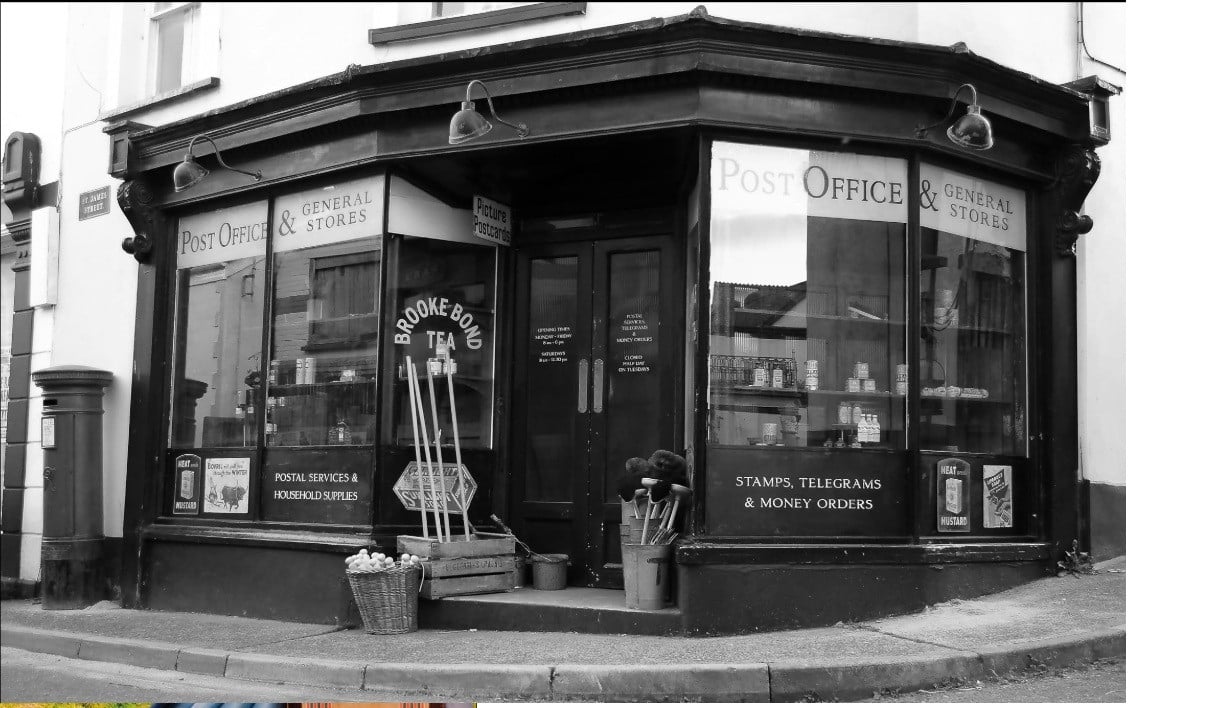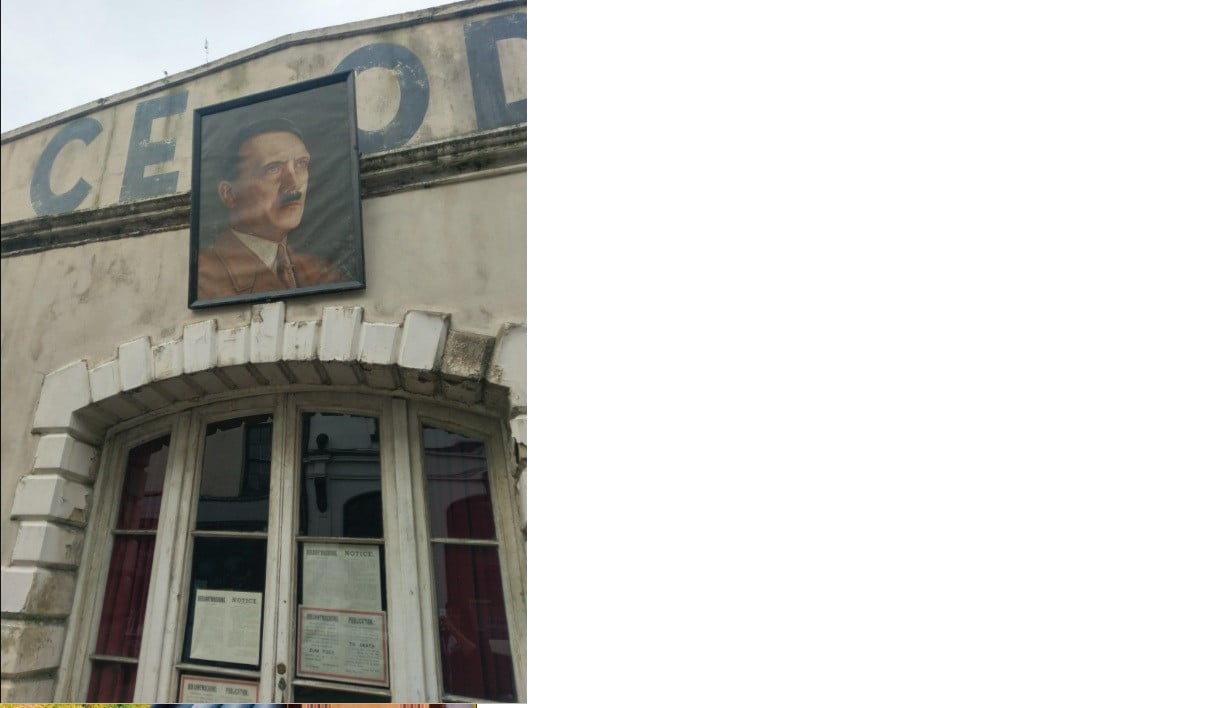If you a true bibliophile, this film will enchant you with its romanticism of books, letters and beautiful places. This 2018 adaptation of 2008 best-seller book of the same name, The Guernsey Literary and Potato Peel Pie Society by Mary Ann Shaffer and Annie Barrows is a heart-warming love story. It is directed by Mike Newell, an English film and television director and producer who won the BAFTA for Best Direction for Four Weddings and a Funeral, and directed the films Donnie Brasco and Harry Potter and the Goblet of Fire. Newell who has a versatile filmography chose to direct this film because he found the characters to be "tremendous" and was drawn to the compelling story of the Guernsey Island's inhabitants [a European-like community] during and after the Nazi occupation of Guernsey, that offers unique insights into a little-known aspect of the history of World War II
We have seen many films about the Nazi occupation and World War II, but not many of us know that the Nazis had occupied Guernsey and the other Channel Islands after the fall of France in mid-1940 until the end of World War II. A mass evacuation of children to the UK mainland followed along with the construction of coastal fortifications, the mining of beaches, oppression, persecution and privation suffered by the civilian population, and the huge intake of slave labour from other countries invaded by Germany. Ofcourse, it was masterminded by Nazi armaments minister Fritz Todt.
Since, Churchill decided that the islands were of little “strategic importance” they were left undefended when the Germans came. No official announcement had been made informing the Germans that the Channel Islands were in fact demilitarised, so the invasion began.

Ridiculously enough, tomato trucks lined up at the harbour were mistaken by the planes for military vehicles and thirty-three civilians lost their lives in the raid. Almost half of Guernsey’s population was evacuated with a lot of confusion and panic. Parents were told to register their children to be evacuated and some were sent away immediately and this continued until almost half of Guernsey’s population were evacuated before the occupation. According to history accounts, little girls were dressed in shiny frocks, stiff petticoats and party shoes, their best attire, to be transported in bitter cold weather! The Nazi’s were in such a great hurry that the German Air Force began their invasion as evacuation boats were still leaving the harbour.
Realising that he would not be able to conquer Britain, Hitler in his madness wanted to create an impregnable fortress out of Guernsey as part of the Atlantic Wall. The Germans laid barbed wire all along and mined all the beaches, set these gun positions all over, and lookout towers were constructed to serve as a defence against any Allied invasion. Guernsey’s coastline was heavily laden with concrete, making up for eight percent of the entire Atlantic Wall, which covered the coast of Western Europe and Scandinavia. In fact, the tiny island of Guernsey was one of the most fortified places on Earth at the time!
The concrete in shape of bunkers, gun emplacements and tunnels can still be seen on Guernsey. All of this was built by slave workers who came to Islands in 1942. They were taken as prisoners of war. They lived mostly in open sheds and tunnels. Thin to the bone and dressed in rags even on their feet in harsh and cold weather, these weary and starved prisoners were marched to their work sites. Guernsey Islanders would stand by their gates to offer them what little food or warm clothing they could spare.

So, even though the Guernsey Literary and Potato Peel Pie Society is fictional, there was apparently another secret society on the island at the time: the Guernsey Underground News Service, aka GUNS. Since the island was completely cut off from the outside world during the occupation, but this secret group managed to keep up to date using secret radios. They would then create secret newsletters to distribute to civilians on the island! Five years after the Occupation began, Guernsey was finally liberated in 1945.
Having traced the roots that inspired its creation, let’s enter the world the film brings to life. The film is set in 1940's WWII Europe. The people of Guernsey are suffering the effects of the German occupation. The island faced a severe food crisis. The ban on potatoes and roasted pig in German-occupied Guernsey was a huge blow because potatoes, a staple food, were confiscated by the Germans — who even mandated specific strains — while the ban on pigs forbade islanders from raising or possessing them, depriving them of a vital food source and forcing reliance on black markets to survive. In the face of this severe food shortage, islanders, including the characters in film creatively used the only food they were allowed to grow: potato peels, to make pie. The pie in fact was a dreadful concoction of potatoes covered with potato peels, without flour or butter!
Secretly preparing a roast represented the islanders' defiance of German authority and their desire for a taste of normalcy during a time of immense hardship. Loss became part of the residents of Guernsey Island as loved ones disappear and the threat of losing another lurked in the distance.

Enter Elizabeth, who was unafraid to speak her soul when she sees someone suffer, and is fiercely and wholeheartedly ready to help others without worrying about her own safety. She brings light to others around her and the suffering they shared brought together a book club called the Guernsey Literary and Potato Peel Pie Society. These book lovers met weekly for lengthy read-alouds, shared quotes and sayings and established a connection that sparked a fight for laughter, hope and life in times of war. To tell you how the book club got its strange name would be an unforgivable spoiler. Hold this thought for a bit, till we can connect Elizabeth to the main characters.
The story begins when a young English writer, Juliet Ashton (Lily James), receives a letter from Dawsey Adams (Michiel Huisman) a farmer in Guernsey, after he discovered her address hand-written in a second hand book by the English author Charles Lamb and he seeks her help in locating a London bookshop likely to stock Lamb’s other works. The two exchange letters, revealing that Dawsey is a member of The Guernsey Literary and Potato Peel Society! Intrigued and curious, Juliet asks more about the society while at the same time telling Dawsey of her credentials as a popular writer. She subsequently visits Guernsey and the Society in the light of an invitation to present her biography of Anne Bronte. Her plan to write about the society in The Times newspaper is opposed by the Society but she is determined to find out why. She discovers that the founder and driving force behind the society was Elizabeth McKenna, [our Elizabeth from the above para] who was imprisoned in Germany near the end of the war for sheltering one of the Todt slave workers, a young Polish boy.
The story maybe historical, but it is tremendously feel-good. Add to the historical context, beautiful location shots, wonderful authentic looking fashion, instantly loveable characters and pressing situations such as food-shortages and curfews, bravery and camaderie of the community in hard times, contrasting with the glamourised setting of the middle class in post-WWII London, and the idyllic island life. The character of Elizabeth McKenna was inspired by the true story of Marie Ozanne, a Guernsey woman imprisoned for defying the occupation and for her membership in the Salvation Army.
Lily James and Jessica Brown Findlay we saw in Downton Abbey, Michiel Huisman in the Game of Thrones, and Matthew Goode in The Crown. The outstanding cast also includes Jessica Brown Findlay as Elizabeth McKenna, Matthew Goode as Sidney Stark, Katherine Parkinson as Isola Pribby, Penelope Wilton as Amelia Maugery, and Tom Courtenay as Eben Ramsey. The soundtrack by Alexandra Harwood is emotive and beautiful.
A man living on one side of England writing a letter to the owner of a book, that he loved so much, on the other side of England just because he found her address on it, might feel a bit slow or redundant in the present day where we are overwhelmed with the rapidness of social media memes, forwards, shorts, reels, and disappearing Whatsapp messages, it is intriguing to see that humble compilations of words and paper in the shape of letters and books could create such an everlasting stir in the society at the time, as well as friendship, romance and connection.
